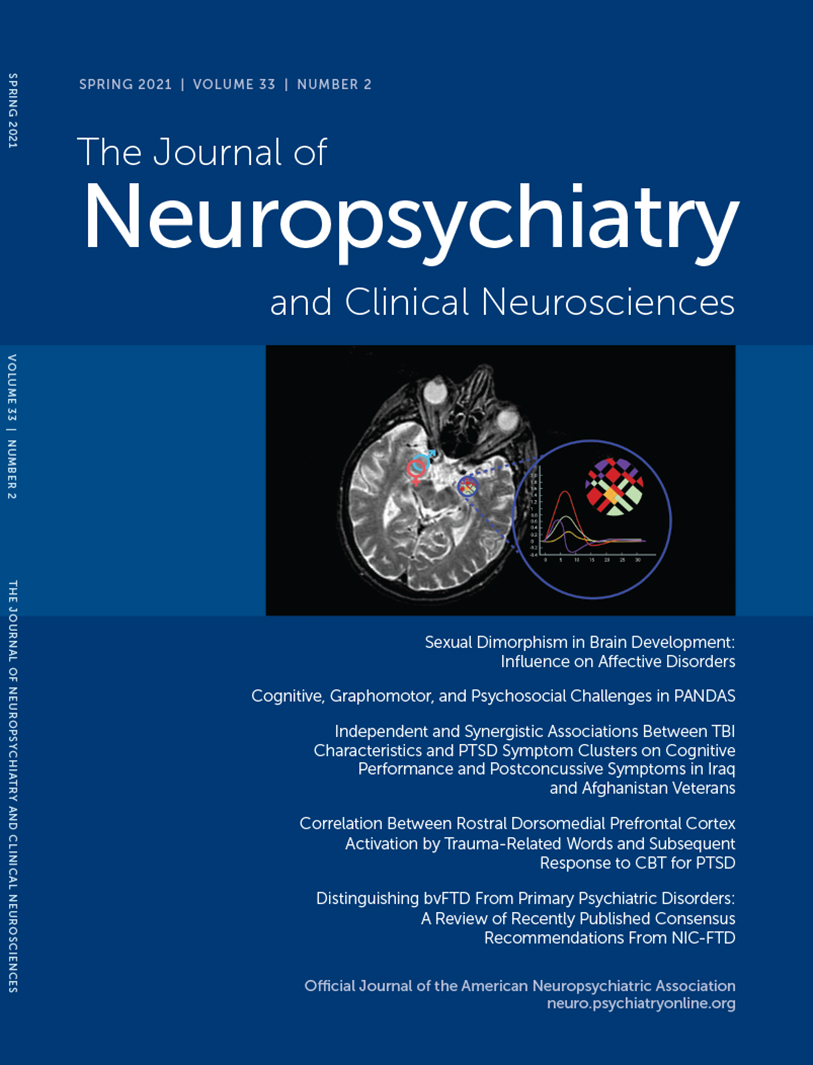Cognitive, Graphomotor, and Psychosocial Challenges in Pediatric Autoimmune Neuropsychiatric Disorders Associated With Streptococcal Infections (PANDAS)
Abstract
Objectives:
Pediatric autoimmune neuropsychiatric disorders associated with streptococcal infection (PANDAS) is characterized by the sudden onset of obsessive-compulsive disorder (OCD) and other neurobehavioral symptoms following group A streptococcal infection. The cardinal neuropsychiatric symptoms are believed to reflect an aberrant autoimmune or inflammatory response that may selectively disrupt basal ganglia function. The investigators examined whether neuropsychological skills associated with frontostriatal networks (executive functions and motor skills) are affected in patients with PANDAS following resolution of acute symptoms and the degree to which there are persistent social, emotional, and academic difficulties.
Methods:
Twenty-seven patients ages 6–14 years (mean age=9.63 years [SD=1.78]; male, N=22) completed neuropsychological testing as part of routine clinical care. Performances on measures of intellectual ability, executive function, motor skills, and academic skills are reported, as well as parent-reported emotional, behavioral, and social skills.
Results:
On neuropsychological measures, patients exhibited average intellectual functioning with relative and mild difficulties in skills supporting cognitive efficiency, including attentional regulation, inhibitory control, and processing speed. Dexterity was normal but graphomotor skills were reduced. Core reading, math, and writing skills were within expectations, but reading and math fluency were reduced, and the majority of patients received special education services or accommodations. Parents reported high levels of concern about anxiety, depression, inattention, hyperactivity, and social skills.
Conclusions:
These findings indicated relative difficulties with aspects of executive and motor functions. Although evaluations were performed following the resolution of acute symptoms, ongoing and significant academic difficulties and emotional, behavioral, and social concerns were targets for clinical intervention and support.



